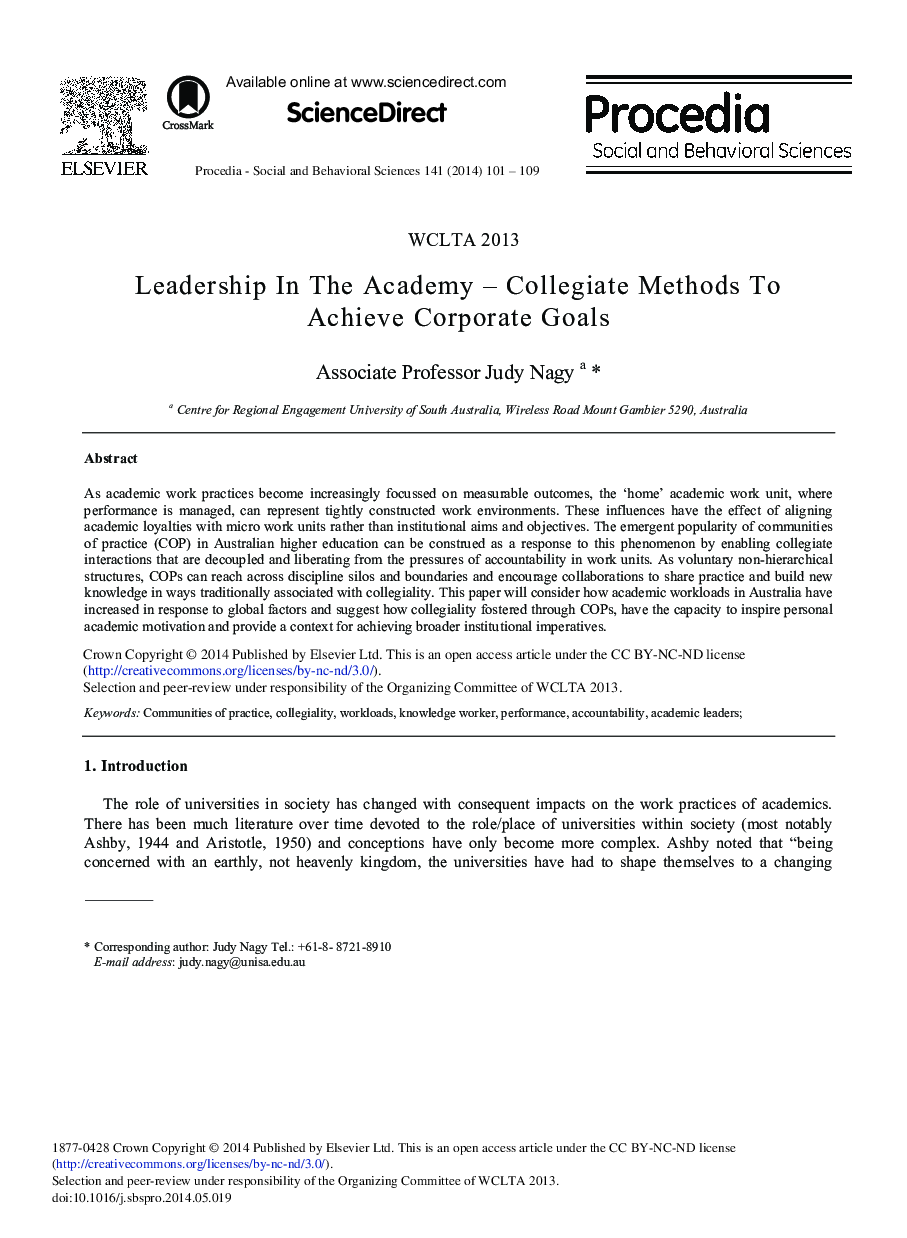| Article ID | Journal | Published Year | Pages | File Type |
|---|---|---|---|---|
| 1113214 | Procedia - Social and Behavioral Sciences | 2014 | 9 Pages |
As academic work practices become increasingly focussed on measurable outcomes, the ‘home’ academic work unit, where performance is managed, can represent tightly constructed work environments. These influences have the effect of aligning academic loyalties with micro work units rather than institutional aims and objectives. The emergent popularity of communities of practice (COP) in Australian higher education can be construed as a response to this phenomenon by enabling collegiate interactions that are decoupled and liberating from the pressures of accountability in work units. As voluntary non-hierarchical structures, COPs can reach across discipline silos and boundaries and encourage collaborations to share practice and build new knowledge in ways traditionally associated with collegiality. This paper will consider how academic workloads in Australia have increased in response to global factors and suggest how collegiality fostered through COPs, have the capacity to inspire personal academic motivation and provide a context for achieving broader institutional imperatives.
